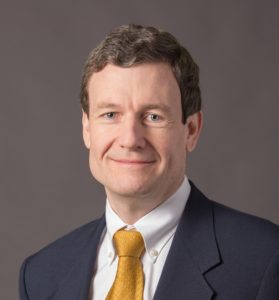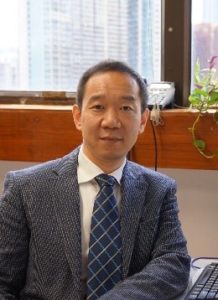Keynote 1: New Uses for Higher-speed Passive Optical Networks
Speaker:
Frank Effenberger, Fellow, Futurewei Technologies
Bridgewater, New Jersey, USA
Abstract:
The remarkable success of passive optical networks (PON) is without equal. From the start of serious deployment in 2001, the industry has reached a billion users served by PON in 2021. This rapid deployment of a new access infrastructure was necessitated by the explosion of bandwidth demand from primarily residential users. This has been made even more acute with the Covid19 pandemic causing many people to work from home, and climate change is expected to continue this trend. The volume of PON equipment and devices has resulted in a virtuous cycle of lower costs which induce more deployment that reduce costs even lower. The current generation, XG-PON, delivers 10 Gb/s bandwidth at a low price point.
Now that a very significant portion of the world’s homes have the availability of fiber, we can start to think about new applications for the underlying technology. This talk will review several of these new use cases and explore how they might impact network design. One example is fiber to the room (FTTR), which uses PON technology to move data through the home. This fills a need as current in-home networks are of lower quality and often fail to meet service requirements. Another is Industrial control, where PON is used to interconnect all the machines, robots, and sensors in a factory. This leverages the highly deterministic nature of the PON to provide low latency and jitter transport. A third application is FTTWireless, where a selection of PONs can provide ultra-high capacity backhaul and fronthaul to cellular antenna sites. This is important as the number of wireless sites will increase dramatically over the next decade. Taken together, these new use cases could produce another leap in the scale of fiber access technology.
Biography:
Dr. Effenberger has worked in the optical access field at Bellcore, Quantum Bridge Communications (Motorola), and Futurewei Technologies, where he is now the Fellow for fixed access network technology. His team works on forward-looking fiber access technologies, with several “world’s first” prototypes and trials. Frank is the rapporteur for ITU-T Q2/15, vice chair of ETSI F5G ISG, is a Fellow of the OSA and the IEEE, and holds 130 US patents.
Keynote 2: TinyML Systems for Edge Intelligence
Speaker:
Song Guo, The Hong Kong Polytechnic University
Abstract:
This talk will focus on the field of Edge Learning. Specifically, learning paradigms, fundamental theories, and enabling technologies for Edge Learning consist the main components of this tutorial. We will first explain the background and motivation for ML running at the network edge. Then, we will review the challenge issues existing in Edge Learning. Furthermore, we will provide an overview of the overarching architectures, frameworks, and emerging key technologies for learning performance, security, privacy, and incentive issues toward training/inference at the network edge. Finally, we will discuss future research opportunities on Edge Learning.
Biography:
Song Guo is a Full Professor at the Department of Computing, The Hong Kong Polytechnic University. He also holds a Changjiang Chair Professorship awarded by the Ministry of Education of China. Prof. Guo is a Fellow of the Canadian Academy of Engineering, Fellow of the IEEE, and ACM Distinguished Member. Prof. Guo’s research interests are mainly in edge AI, big data and machine learning, mobile computing, and distributed systems. He published many papers in top venues with wide impact in these areas and was recognized as a Highly Cited Researcher (Clarivate Web of Science). Prof. Guo has served as an IEEE ComSoc Distinguished Lecturer, Director of ComSoc Membership Services, member of IEEE ComSoc Board of Governors, and the current Chair of IEEE Communications Society Space and Satellite Communications Technical Committee. He also serves for IEEE Computer Society on Fellow Evaluation Committee, the inaugural Editor-in-Chief of IEEE Open Journal of the Computer Society, and on editorial board of a number of prestigious IEEE Transactions and Journals. He has served as chair of organizing and technical committees of numerous international conferences.




